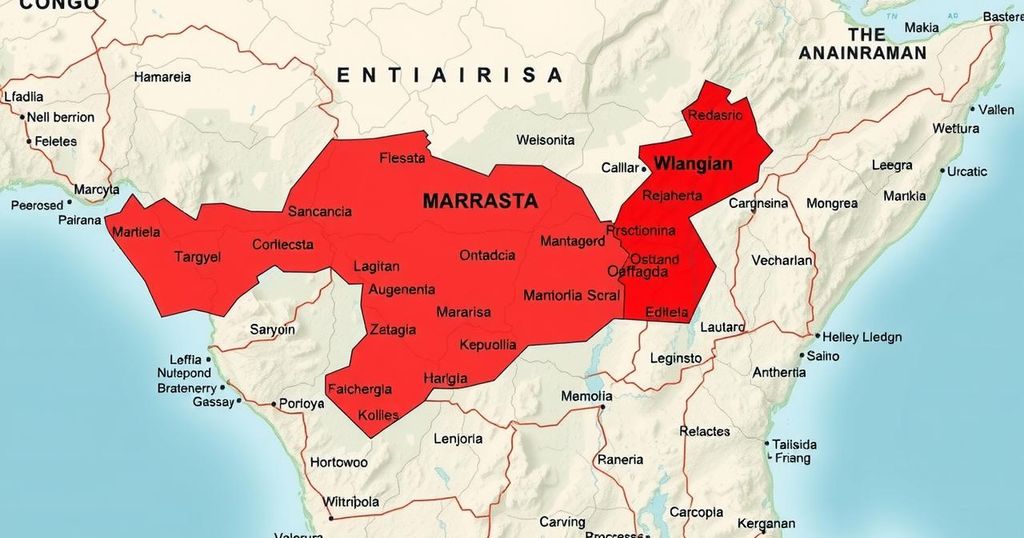Conflict and Humanitarian Crisis in the Democratic Republic of Congo: Kwamouth Territory

The conflict in Kwamouth, DRC, between Teke and Yaka communities has escalated since June 2022 due to land disputes, resulting in nearly 146,000 displacements and affecting over 2.78 million people in need of humanitarian assistance as of January 2024. Violent events continue to plague the region, disrupting essential services and creating a volatile security environment.
The ongoing conflict in the Kwamouth territory of the Mai-Ndombe province in the Democratic Republic of the Congo (DRC) stems from a long-standing land rights dispute between the Teke and Yaka communities. This discord, which erupted in June 2022, has escalated into widespread violence affecting multiple provinces, including Kwango and Kwilu. Both communities have historically coexisted but increasing population pressures, resource shortages, and political opportunism have exacerbated tensions. By late 2024, this conflict had displaced nearly 146,000 individuals and left millions in dire humanitarian need, complicating access to essential services. Furthermore, the violence has resulted in numerous fatalities and significant disruptions to daily life in the region, showcasing a deteriorating security landscape that threatens the livelihoods and safety of both communities.
The conflict between the Teke and Yaka communities is rooted in disputes over land ownership and customary fees, with the Teke asserting their status as the original custodians of the land along the Congo River. Historically, both groups managed to develop a shared approach to land use until recent demographic changes and external pressures prompted rising tensions. The violence has since led to extensive humanitarian crises, forcing many to flee their homes and straining local health and educational services.
The situation in western DRC remains critical, with intense intercommunal violence disrupting lives and livelihoods. As of early December 2024, significant humanitarian needs persist, impacting over 2.7 million individuals in the affected regions. The ongoing conflict not only undermines local stability but also poses severe challenges for humanitarian access and support. Sustainable resolutions to the underlying disputes and improved access to aid are imperative to mitigate the ongoing humanitarian crisis.
Original Source: reliefweb.int








